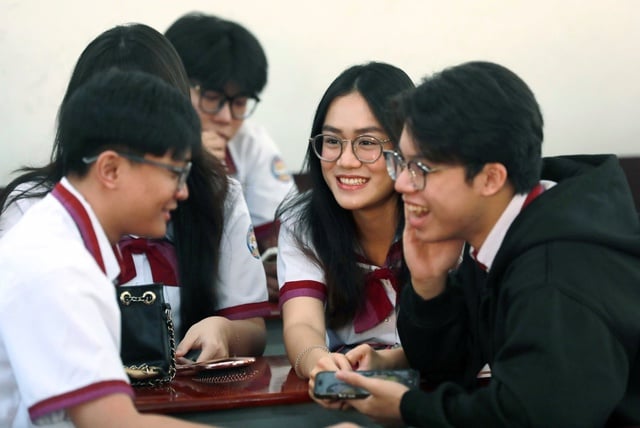
In the digital age, students must know how to turn their phones into tools for learning, connection, and creativity.
PHOTO: NGOC DUONG
In the rapid pace of the times, the world is expanding day by day and information technology has become an indispensable part of human life. People turn to technology to study, to work, to connect and to create. Students are certainly not outside of that flow.
As smartphones and social networks creep into every corner of the classroom and every break, anxiety grows in the hearts of parents, teachers, and policymakers. Here, a question arises: Should we absolutely ban students from using phones, even during recess, to "rest assured management"? Or on the contrary, should we give them trust and at the same time guide them on how to use them properly?
The concern is that students are not taught how to use it.
There is a reality happening everywhere that many young people rush into social networks just to have fun, live a virtual life, argue aimlessly, and even become "heroes" on the keyboard. The price to pay is not small: Time passes in vain; Physical decline with nearsightedness, hunchback, calcification of the vertebrae...; Mental depression, loneliness, distance from the real world. Community relationships that used to be close now gradually shrink, giving way to disunity and coldness.
We cannot ignore the images of students hunched over their screens, eyes red from staying up late, or shoulders slumped over their desks in class the next morning. But that does not mean technology is the enemy. It is not the device, but how people use it.
For a long time, whenever faced with a difficult problem to manage, many places have chosen a quick solution: banning. It is true that when banning, adults feel temporarily secure, but in reality, students still find ways to get around it, still use it secretly, and even use it more incorrectly.
Smartphones, social media, and technology in general are not things to be banned. What we need to worry about is that students are not taught how to use them. In the digital age, students must know how to turn their phones into tools for learning, connecting, and creating.

It is necessary to create a living environment for students to understand how to use the phone properly.
PHOTO: NGOC DUONG
Need alternative playgrounds
If we don’t want students glued to their phones, we have to create other, more engaging spaces. When the phones are put away, students need a real playground, a place to have fun, be creative, and connect. Schools should not only teach words, but also nurture the soul.
Recess, break time, afternoon school... are the times when there should be playgrounds suitable for each student's needs such as: soccer field, volleyball, basketball, badminton for health; chess corner, Chinese chess, chess for thinking; gym, foosball table for healthy entertainment; spacious library for those who love to read; auditorium becomes movie theater, where students choose and enjoy meaningful movies...
With such options, students will no longer see the phone as the "only way out". Instead, they will naturally choose football, books, movies, and face-to-face communication. That is the clever way of education : not forcing, but creating conditions for the good to be more attractive than the unhealthy.
Regaining trust in socializing educational activities
But to have those spaces, schools need resources. Teachers have plenty of ideas and enthusiasm, but to turn them into reality, they need funding.
Here, the support of parents is extremely important. However, in reality, the trust of society in the funding of the Parents' Association is gradually decreasing. If trust is not restored, the socialization process will face many obstacles. The problem is not about how much or how little the contribution is, but about transparency, openness, and efficiency. Every penny that parents contribute must be turned into tangible value: a football field, a gym, a cultural activity for their children. When trust is regained, support will come naturally, even stronger.
Moral education – the most important foundation
Technology opens up an endless world, but without a moral foundation, students can easily fall and go astray. Students' morality does not form naturally, but needs to be taught and nurtured in school, in each lecture, in each example of teachers... When students are imbued with honesty, responsibility, love, creativity and aspiration, the phone will only be a supporting tool, unable to overwhelm their personality. Because in the end, technology is just a means; the deciding factor is still people.
The world changes, students change, so the way of thinking about education management must also change. A humane education is to trust students, while creating conditions for them to practice and mature. That is the way to maintain school discipline and form confident, creative and happy digital citizens.
We cannot train the new generation by closing the door to technology, but must teach them to open it in a civilized way. Let's boldly put our trust in the young generation, create for them a playground, an environment, and a companionship mechanism.
Source: https://thanhnien.vn/giao-duc-trong-ky-nguyen-so-cam-doan-hay-huong-dan-185250919111914744.htm



![[Photo] Da Nang: Hundreds of people join hands to clean up a vital tourist route after storm No. 13](https://vphoto.vietnam.vn/thumb/1200x675/vietnam/resource/IMAGE/2025/11/07/1762491638903_image-3-1353-jpg.webp)




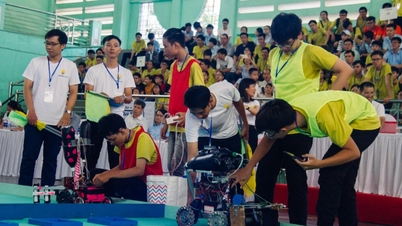




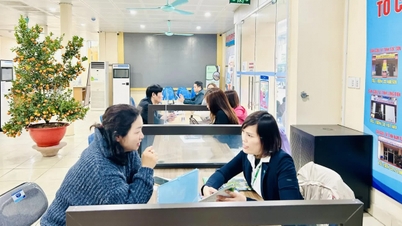

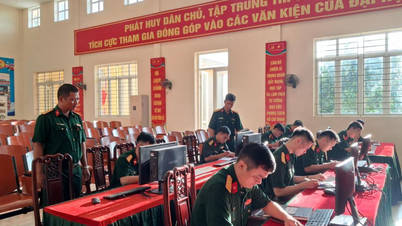
















































































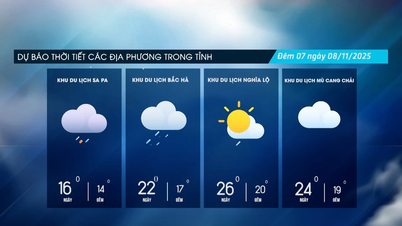

















Comment (0)